

Living with AHP
Everyday living with AHP
Acute hepatic porphyria (AHP) is a rare inherited condition that causes severe attacks and ongoing symptoms that significantly impair daily life, posing potential dangers and reducing overall well-being. Indeed, the impact of AHP goes far beyond its physical signs and symptoms.
Every day I get sickness, headaches, nerve pain, pins and needles. You get a really dull ache in your stomach. You just have to try and take the correct amount of painkillers to deal with that, to deal with the sickness, to deal with the nerve damage.
— Alicia, living with AHP

POWER STUDY SHOWS THE IMPACT OF THE DISEASE FOR PEOPLE LIVING WITH AHP
A study conducted in 2022, called POWER study, assessed the full spectrum of well-being and unmet physical, emotional, cognitive, financial, and social needs in people living with AHP across countries and regions of the world.
CHARACTERISTICS OF THE PEOPLE PARTICIPATING IN THE POWER STUDY
People included in the study:
- were at least 18 years old,
- had received a diagnostic test result confirming the diagnosis.
The study participants completed an online survey and came from several countries namely:

HOW THE STUDY PARTICIPANTS PERCEIVED THEIR OWN HEALTH STATUS
People living with AHP reported the greatest impairment on physical, emotional, and financial health.
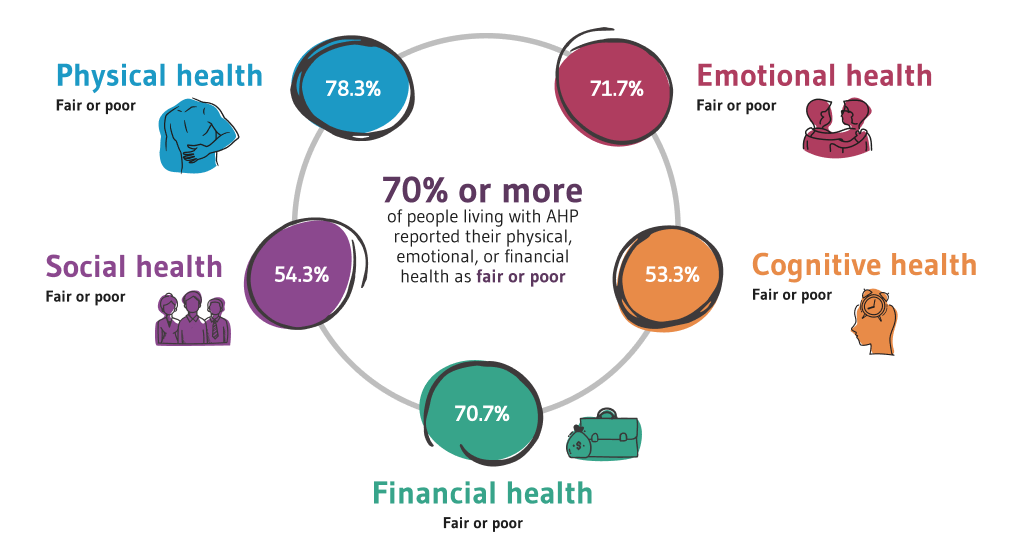
HOW AHP IMPACTS THE DIFFERENT ASPECTS OF HEALTH OVER TIME
Most people experienced negative (very or somewhat negative) impacts (since their diagnosis) on:
- Emotional health
- Physical health
- Financial health
- Social health
- Cognitive health
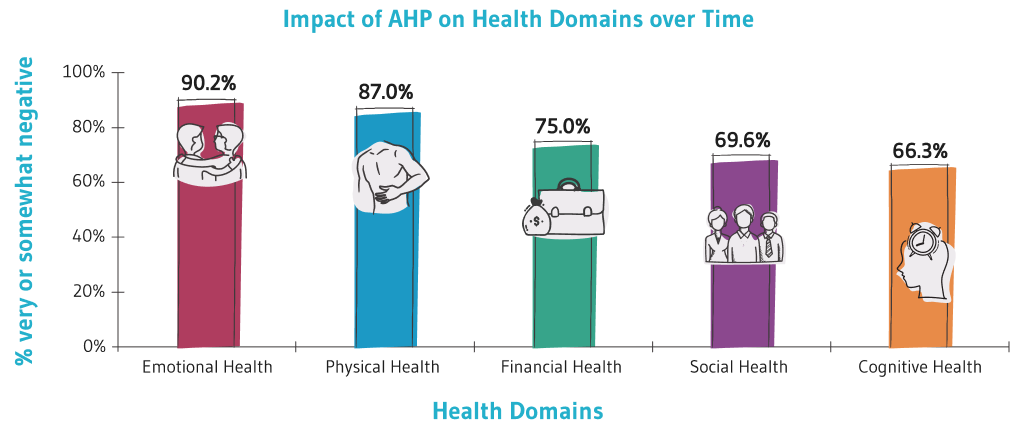
PERCEPTION OF PHYSICAL HEALTH
Pain, acute muscle weakness and fatigue were considered the most burdensome symptoms.
AHP impacts body and mind
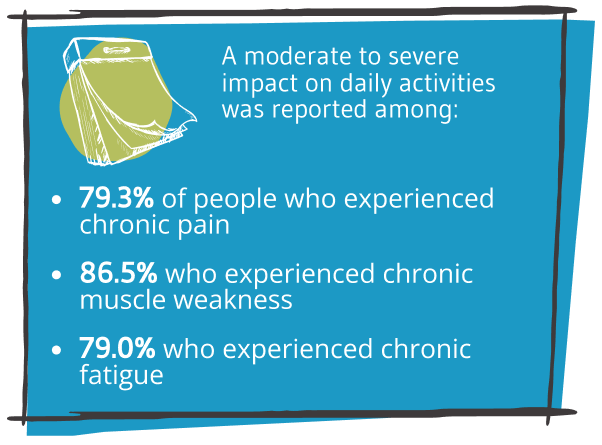
Sleep difficulties
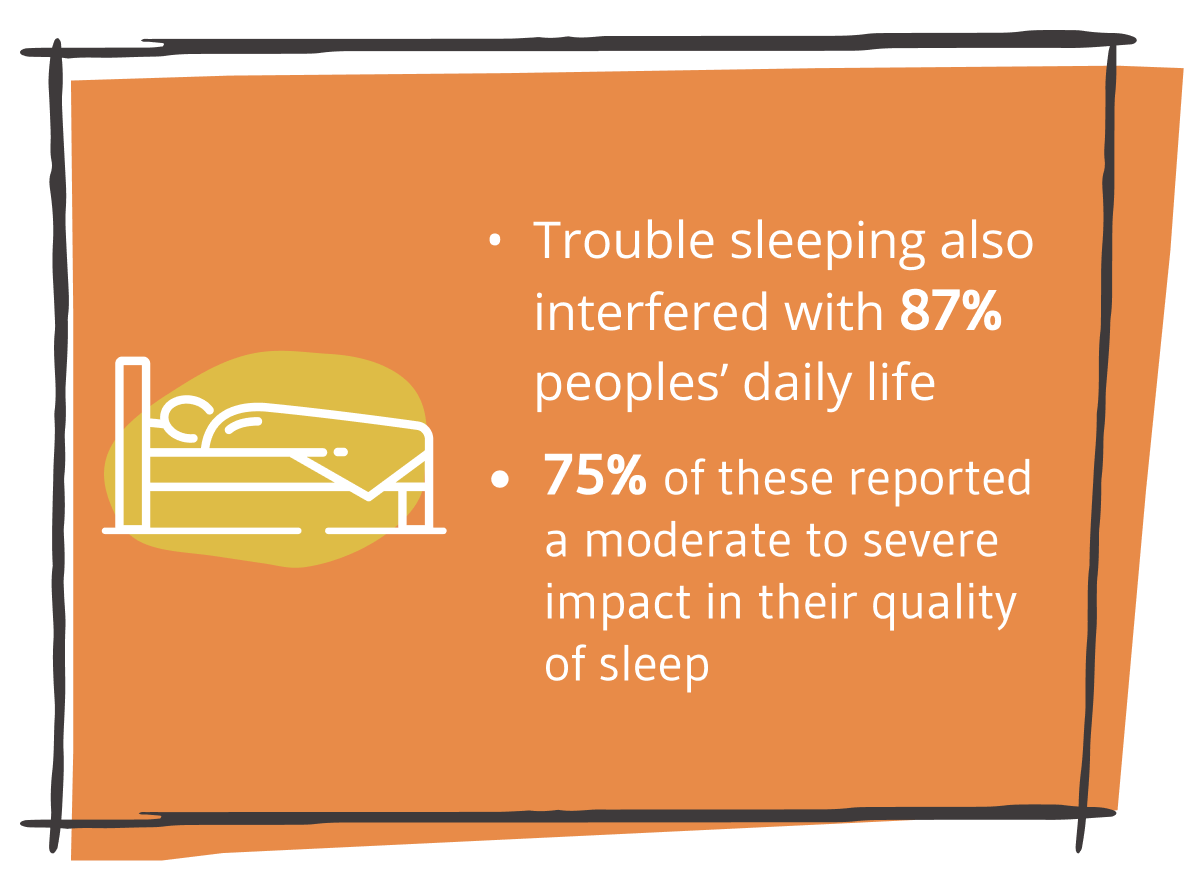
Poor pain management
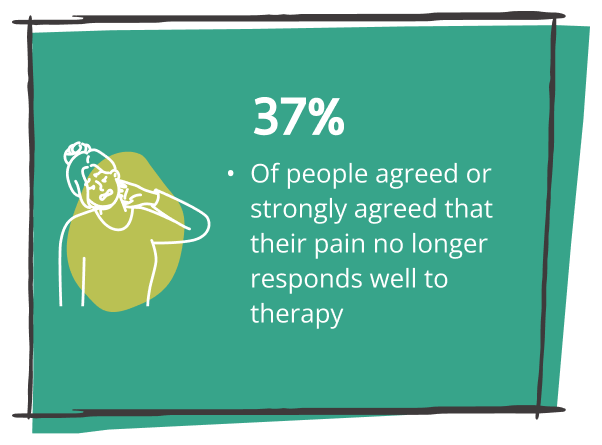
PERCEPTION OF SOCIAL, EMOTIONAL, AND MENTAL HEALTH
Social/emotional distress and depression/anxiety were reported by many interviewed people.
Social/emotional distress
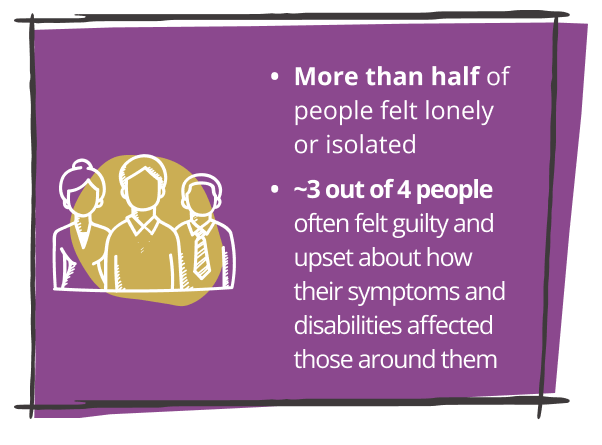
Depression/anxiety
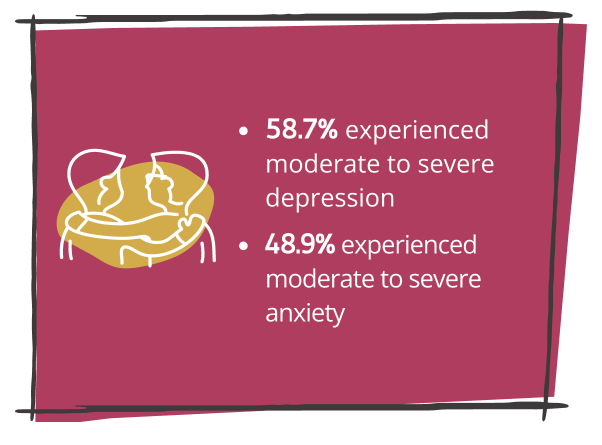
Alleviating AHP burden
These results demonstrate that AHP is a debilitating, life-altering disease, with chronic symptoms and complications that degrade patient quality of life over time.
People living with AHP need treatment plans that can reduce attacks, alleviate chronic symptoms, and improve quality of life over time.
ARE YOU EXPERIENCING SYMPTOMS OF AHP? TALK TO YOUR DOCTOR TO LEARN ABOUT MANAGEMENT OPTIONS FOR AHP.

To help you have meaningful conversations with your doctor about AHP, a Doctor Discussion Guide is available that you can download and complete before your next doctor visit.
MANAGEMENT OPTIONS FOR AHP
You should always discuss management options with your healthcare provider. For people living with AHP , there are also strategies that can help decrease the chance of having AHP attacks. In extreme cases, liver transplantation may be considered.
MANAGING ACUTE ATTACKS
Besides debilitating chronic symptoms, AHP can also cause unpredictable and severe attacks.
- Severe attacks often require hospitalisation or urgent medical attention.
- Attacks can be treated with intravenous therapy:
- Intravenous means when a medicine is delivered directly into a vein.
- Your doctor may also prescribe medications to treat specific symptoms of an attack such as beta-blockers for high blood pressure and rapid heartbeat, an antiemetic for nausea and vomiting, and pain medication.
AVOIDING TRIGGERS CAN MAKE A DIFFERENCE
Common triggers for attacks are shown below. Since triggers can be different for every person, there may be others not listed here.

BE AWARE OF:
- The way some drugs in certain medication classes may affect AHP, including:
- Seizure medications
- Antihistamines
- Hormones
- Migraine Drugs
- Sedatives
Speak with your doctor if you have any questions about your medications and AHP and to identify which drugs could be suitable to you.
- Hormone level fluctuations during a woman's menstrual cycle
- Stress caused by
- Infections
- Surgery
- Physical stress
- Psychological stress

TRY TO AVOID:
- Drinking alcohol
- Smoking
- Fasting or extreme dieting
Get the help you need
TALK TO YOUR HEALTHCARE TEAM
If you have AHP, it's important to keep communication lines with your doctor open. Sharing your symptoms and concerns can help them tailor a treatment plan that is right for you.
REACH OUT TO FAMILY
With a disease like AHP, it can be helpful if family and/or close friends understand the disease so they know how to best support you. Be sure to explain to the people close to you the importance of steps you're taking to avoid triggers.
THE FAMILY CONNECTION
When someone is diagnosed with AHP, it is important to tell family members so they can consider getting genetic testing. AHP is a genetic inherited disease, so family members of someone who has AHP may also have inherited the altered gene responsible for the disorder. While most people with an altered gene may never have symptoms, they are however at risk of having an attack, or at risk of complications associated with elevated levels of ALA and PBG. Knowledge of genetic risk of AHP may enable people to make informed decisions regarding lifestyle and medications with the intent to prevent attacks and complications of the disease. Therefore, family members of someone who has AHP may want to talk with their doctor about genetic testing for AHP.
The following resources can help you learn more about the genetic risk of AHP and have these discussions.
Access Resources on Genetic TestingTALKING WITH OTHERS ABOUT AHP
Consider talking with family, friends, and possibly co-workers about AHP. Explaining AHP to them can help them understand the unique burden of this debilitating disease. It can be challenging but here are some tips than can make those conversations easier:

- Start by saying that AHP is real: Although rare, with painful symptoms that mimic other diseases, AHP is a real genetic disease that can disrupt one's daily life
- Some may feel that a person living with AHP is exaggerating or being overly dramatic. Explain to family, friends, and co-workers that AHP is a rare, genetic disease. It is often confused with other diseases. This can help them understand the unique burden of AHP
- Tell them that some people living with AHP may experience debilitating attacks: AHP can cause sudden attacks, leading to absences from work, school, and social functions
- Consider telling your immediate family, supervisor, and human resources manager about the unpredictability of these attacks, so they can be supportive when these occur
- Explain that some people living with AHP experience ongoing symptoms: The disease can have long-term symptoms that require daily management, including diet and lifestyle changes
- Be sure to make your family, friends, and co-workers aware of these diet and lifestyle changes